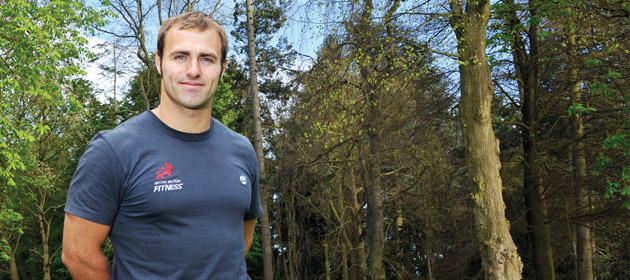
Sports drinks - just extra calories?
September 10, 2011
Topics:

I decided to try drinking coffee half an hour before an exercise class to give me that caffeine edge and a competitive advantage.
Wrong move!
Sadly the only competitive edge I was going to get over the other members was if they slipped on the vomit which I would surely spray the common with.
It didn’t sit well in my stomach but managed to keep it down during the class, that’s why I think your best bet is water before and during fitness classes. After the exercise class I’d go for a milkshake as it has the right combination of carbohydrates to protein.
But let’s talk about the body’s water/fluid requirements first.
Fluids are needed on a regular and constant basis to support all the body’s functions. Water makes up about 60% of our bodyweight and the effects of losing this bodyweight can be drastic!
Fluid can come from the drinks we consume or the food that we eat. A 2-3% loss of fluid in the body can impair performance and increase body temperature. A 4% loss has shown to reduce endurance by 20-30% as reported in some studies. A 5-6% loss can result in heat exhaustion and from this point onwards any further loss can be fatal.
The sports drinks market is big business these days. Sports drinks make a variety of claims from increasing your focus, increasing your endurance and some even reckon they can give you wings! Who needs public transport anymore a swig of that stuff will get you about town no problems just look out for the pigeons though!
Some drinks are simply there to re-hydrate others to re-fuel as they have more sugar in them. Which drink is most suitable to the individual is dependent on the exercise class that the individual is participating in. Different fitness classes of varying duration and intensity have different energy requirements.
In outdoor bootcamps such as BMF which lasts an hour you would be fine with water. Your glycogen levels (the stored fuel the body holds in the muscles and liver) would not have been totally depleted in 60 minutes. However being hydrated before the session is so important. If you are already thirsty before the session then dehydration has already set in (possibly a loss of 1%). You can check your hydration levels by looking at the colour of your wee, if its pale yellow then you should be ok. If it’s dark and smells of sugar puffs then you need to drink water to hydrate. There are exceptions to the rule though, things like some vitamin tablets can discolour your wee and beetroot is amazing at turning wee purple. It never disappoints me!
The researchers from the American College of Sports medicine (ACSM) still recommend that water is best to rehydrate for an exercise class lasting less than 60 minutes.
If a session lasted for between 60-90 minutes drinks containing a little sugar would be the best option. During moderate to hard workouts carbohydrates supply at least 50% of the energy. As glycogen stores are depleted these drinks can help replenish stores and begin to refuel the body enhancing the endurance performance.
Sports drinks are classified by the solution of sugar found in them. There are 3 kinds; hypotonic, isotonic, and hypertonic.
Blood has a sugar concentration level of about 4-8%.
Hypotonic drinks have a sugar concentration level of less than 2% which means it gets absorbed quicker than water for fast rehydration.
Isotonic drinks have the same concentration as blood about 4-8% which means that it gets absorbed as quickly as water.
Hypertonic drinks have a higher sugar concentration level than blood and, hydrates at the same rate as water but has a net dehydrating affect compared to water.
To recover after fitness classes it’s important that you should have a source of protein in your recovery drink. After exercise you have a window of 45 minutes to get the correct fuel on board. Miss this window and your body will take a lot longer to recover. A ration of 3 or 4:1 of carbs to protein is scientifically proven to be the best combination.
You need the carbohydrates to replenish the glycogen just used up in the session. But people often neglect protein because they aren’t aware why it’s needed. During vigorous exercise muscle damage occurs and muscle breakdown has taken place. Protein is needed to initiate muscle tissue repair and promote muscle growth. Protein also bolsters the immune system. Cortisol is a hormone produced by the body in times of stress; cortisol has been proven to suppress the immune system. And the amino acid glutamine which is a form of protein plays a critical role in the support of the immune system. Therefore protein is essential to improve an athlete’s recovery and to keep them healthy.
I hope this helps!
Neal.
